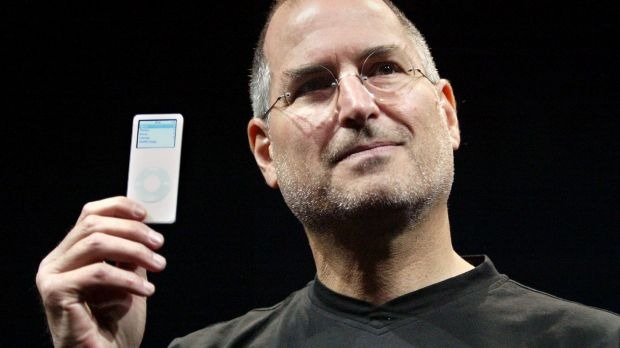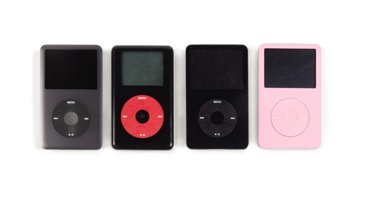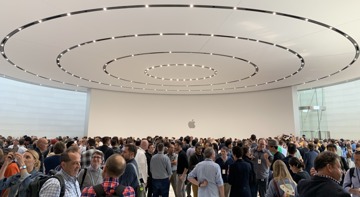A patent that Creative Technologies used in the beginning of the century against the iPod forcing a $100 million payout by Apple has been invalidated, saving the rest of the smartphone industry from costly settlements and protracted legal battles.
First spotted by Law360, Administrative Law Judge David Shaw of the U.S. Patent and Trade Office (USPTO) has ruled that Creative Technology's patent that addresses music library navigation and sorting in the iPod, and now iOS overall, was too abstract to be eligible for a patent.
In August 2006, Apple reached an out-of-court settlement with Creative Technology for the patent just potentially ruled invalid by the USPTO. Apple paid Creative a single license fee of $100 million to use Creative's software interface patent, which had just been awarded to Creative at the time, for all Apple products.
Creative defended patent number 6,928,433 before the USPTO earlier this year by claiming that as a result of the 2006 agreement forged over the iPod's software, thousands of jobs at Apple were created, and would be in danger if the patent was invalidated.
"These innovative inventions of the '433 patent have now become ubiquitous in the industry," Creative's complaint to the USPTO said in May. "While Apple Inc., which uses these inventions in its iPod and iPhone products, has taken a license, others in the industry have made use of Creative's invention without permission."
Creative filed for the patent violation investigation against Blackberry, HTC, Lenovo-owned Motorola, LG, Samsung, Sony, and ZTE and was seeking a wide array of products be banned from sale in the U.S. The ruling on Friday was made under the USPTO's new 100-day program to streamline the patent complaint process, which can stretch on for years, well after the products alleged to be infringing patents are irrelevant in the marketplace.
Judge Shaw's ruling is still reviewable by the full USPTO commission of judges, and may be overturned upon examination. The ruling will not stop Creative's lawsuits against several of the manufacturers in the federal court in the Eastern District of Texas, also known as the "rocket docket" for patent trials.
 Mike Wuerthele
Mike Wuerthele







-m.jpg)






 Thomas Sibilly
Thomas Sibilly
 Wesley Hilliard
Wesley Hilliard
 Marko Zivkovic
Marko Zivkovic

 Malcolm Owen
Malcolm Owen

 Amber Neely
Amber Neely










20 Comments
One down, hundreds of thousands to go
When you read the patent, all they're doing is detailing a simple use of a standard database, in this case they're using song names. I'm sure you could find database templates that could do the same thing in just about every database application available on the market today. I believe patents should be accepted for very specific and technical implementations of database implementations that are unique but this patent was far from unique and actually overly simple. It would have been something students had an an example in Computer Databases 101.
If the full USPTO commission on judges decides to review Judge Shaw's ruling and agree with him, will Creative be on the hook to pay Apple back all of the licensing fees they paid or will Creative simply be shut down, finally ending their crusade against all the other companies?
Their name is an oxymoron. Being a patent troll is the opposite of being creative. Those who can, do; those who can't, sue. I agree with the above, they should be forced to pay back their extortion.
It's fu**ed up that Apple licenses these patents($100 million wow) and other companies steal without paying a penny(samscum). I can't believe these other companies are allowed to sell products in the U.S. for decades without consequence.
If the patent is invalidated will Apple get their money back? Or will they be screwed of $100M while the other scumbags get away Scot free?